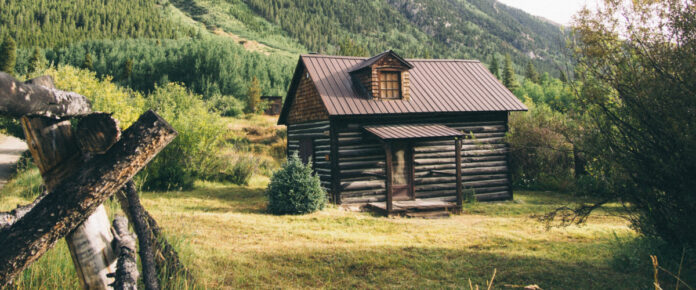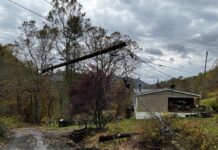I recently spoke to a good friend who is in our prepper group. He and his family live and work in one location but most of his prepper supplies are at his retreat, which is about 3 hours away. This includes the bulk of his storage food and ammo.
They have plenty of food for now, and lots of .22LR, but he mentioned having only 150 rounds of ammo on hand for his rifle. (Having this little ammo is, in my opinion, a mistake. It’s easy to pack 500 or 1,000 rounds of 5.56 in an ammo can and throw in your trunk or the back of your car.)
I told him he had two choices: One, go to his retreat, load his truck up with food and ammo, and bring it back home or two, bug out to his retreat and stay there.
Honestly, I think his best bet if things stay as they are today would be option one: Go to the retreat, load his truck and trailer with supplies and take home enough to live on for some months. Then batten down the hatches and stay at home unless he loses his job, he is worried that he will be infected, or things get quite grim, at which time he should reconsider and bug out for the duration.
Advantages of Bugging Out
That raises an important question preppers with retreats should consider: Is the Coronavirus outbreak a big enough disaster that we should bug out?
Let’s review why we have retreats and might want to bug out: The primary purpose of a bug out location is that it living there increases your odds of both short and long-term survival vs living in your daily residence. Retreats are usually rural because the cities are dangerous in and after a disaster. But it only make sense to bug out if you will be safer, healthier, and more secure at the bug out location than if you bug in and stay home. For example:
- Bugging out generally gets the prepper out of an urban area where their might be civil unrest and into a more rural one where there is, ideally, less danger of roving bands or gangs of people out to get you and your supplies.
We have not yet hit this criterion. At this point, there have been no food riots. Maybe a few cases of fisticuffs at Costco, but no rioting or looting in which hungry, angry crowds gather outside the grocery store, smash the doors and strip the store bare in a matter of hours. There’s been no protestors throwing rocks at police, no cars set on fire and very little violence.
- Bugging out allows us to be more self-sufficient,
and bug out locations often include land for gardening, hunting, trapping, fishing,
and a cache of stored supplies
So far, there’s not much need for self-sufficiency as a result of the pandemic. Yes, we preppers are happy to have plenty if toilet paper on hand, but we haven’t ahd to dig too deeply into our supplies as of yet. Grocery stores are open, restaurants are serving take out, the phones work, powers on, and you can still show up sick at the hospital and get a bed and darn good care. The biggest threat most people face is job loss and economic harm, and bugging out won’t improve that.
- The bug out retreat may have a wood stove for
heat and be less dependent on other utilities such as natural gas, water and
sewer.
Again, no need to bug out yet. Utilities are up and running with no sign of any possible outages. Burning wood may in time become an economic requirement, but that is not the case yet.
Given the above, bugging in, i.e., staying where you are, seems to make the most sense if you have some basic preps (like toilet paper, sanitizing supplies, and food).
When to Bug Out
Depending on the duration of this disaster, the durability of our supply chain, the number of people who become seriously ill and die, and the whims of our state and federal leaders, there may still come a time to bug out.
Also, if you no longer have a job and the prospects of getting one during the disaster are dim, then there is nothing stopping you from bugging out.
If you really want to practice self-imposed quarantine, then bugging out might be the way to do it. You’ll be more remote, your kids will have less peer pressure to break the rules, and you may have the great outdoors to keep you occupied.
If you think food supplies will run low, then head to your bug out location now and plant that garden. Hopefully you’ve already got a fence around your spot and have prepared the soil. Get a hunting/trapping/fishing license before they close the stores that sell them.
The Threat of Martial Law
The biggest threat my friend faces is that the government will stop allowing us to move freely around the country. If there comes a day when my friend is not allowed to travel to his bug out location he’ll be stuck in his house with limited supplies.
Just like those coastal dwellers who leave a few days before the hurricane hits fare better than those who leave at the last minute, it’s better to bug out a day too early than a day too late.
Think about it: Thousands of Americans were stranded overseas when the government shut down air travel from Europe. Millions of people are being told not to leave their home. What’s to stop the government from halting inter or even intra-state travel? The National Guard and military personnel are already being used to help fight the pandemic. Just a couple police cars or military vehicles at each on ramp and they could cut off Interstates pretty quickly and easily.
The idea that the government may declare martial law, override our constitutional safeguards, and stop people from driving around may sound strange to Americans, but it’s a possibility that should not be ignored. That day isn’t here yet, but I’ve seen enough stories in the news about plans for the military to step in and declare martial law that you have to wonder if it’s in our future. At the risk of sounding like a conspiracy theorist, it has been my experience that stories like that are often used to plant the idea in the American subconscious. Then, when it happens, it’s not as big a surprise.
This story https://offgridsurvival.com/martiallaw-unitedstates/ gives a good deal of background on the various emergency powers the government has. It was picked up and ran on ZeroHedge, but I’m linking to the original site.
Stay or Go
My recommendation is to stay home if something is keeping you there, like a job, needing to provide elder care, or something else. Stay if your retreat requires you to live in a tent or a trailer and your daily living home is better.
But go if you have someone in the house who is immunocompromised and at a high risk of catching a terminal case of coronavirus. Go if the disease makes you nervous and you’d prefer to withdraw from society.
But if you stay, monitor the news and be ready to leave on less than 24 hours notice. Have your get-out-of Dodge (GOOD) bag packed. If you have a trailer, pre-load it so you can make the escape to your retreat with little advanced notice.








